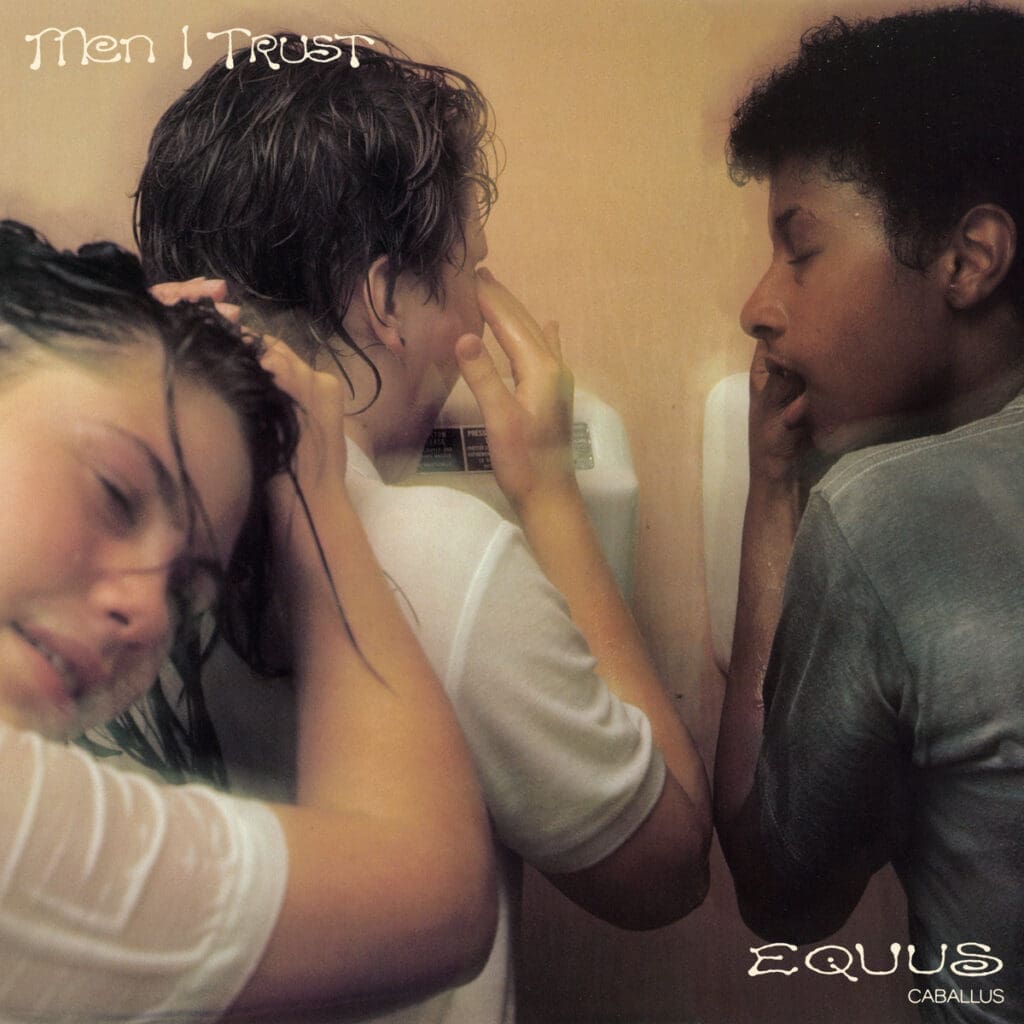Is your favorite band blessing your ears with two albums in two months? Well, if your favorite band is not Men I Trust, then the answer is no. This Canadian indie band rose to fame off of the single “Show Me How” and have developed a loyal and committed fan base over the years. This came to fruition by not only releasing traditional albums, but remakes, live sessions, and plenty of tours to keep their supporters coming back for more. The appetite of many, including myself, was satisfied when Men I Trust released two albums with short turnaround to accompany their Equus Tour– Equus Asinus and Equus Caballus– providing us with polar opposite emotional journeys that lead to an ultimate reward.
Equus Asinus
Equus Asinus leans into the dreamy, lo-fi indie-pop aesthetic Men I Trust is known for, but takes a more introspective, minimalistic route. The album feels like a private journal– hazy synths and whispery vocals dominate. It’s moody, sparse, and demands self-reflection. While Emmanuelle Proulx’s vocals are central to much of the work done by Men I Trust, they’ve always incorporated and emphasized instrumental interludes or full songs– especially in albums like Oncle Jazz and Untourable Album– to highlight their cohesiveness and prowess as a band. Prior to my introduction to the collective, I was not keen on songs that are solely instrumentals, however, what sold me was “Paul’s Theme” from this album. The track stands out for its elegant simplicity and emotional depth, achieved through a carefully curated selection of instruments and compositional choices. Jazz-inspired chord progressions are noticed throughout the piece, along with textbook synthesizer tones and subtle guitar work. With this particular track, I draw parallels to various film scores based on the sense of nostalgia and introspection that it evokes. Equus Asinus is the emotional sibling in the duo of albums. There’s a more downcast emotional palette compared with a melancholic focus that differs to their previous work. Emmanuelle Proulx’s vocals are breathy and almost ghostlike at times, weaving in and out like an internal monologue. Tracks of note include “Blue Cowboy”, a softly pulsing opener with a subdued melancholy, “Stay True”, one of the more melodically memorable moments, yet still quiet with structure, (title is quite ironic considering that Men I Trust stay very true to their approach on the album with this song). Cuts like “Billie Toppy” and “Girl” showcase their knack for subdued groove and melodic subtlety. The one critique I have with this album and with Men I Trust in general is that some tracks blur together, especially over their longer albums. However, this album came in at fourteen songs, yet still felt repetitive at times. The leanness in the production creates intimacy, but also takes a risk that leads to emotional flatlining. Equus Asinus relies heavily on mood, not musical progression. At times, while the lyrics come across as a diary entry from Emanuelle, there is some emotional vagueness.

I’m the kind of listener who chases music that sparks a euphoric vibe, and this album is perfect for moments like solitary walks, late-night drives, or any time you’re feeling reflective and mellow. A trope that Men I Trust has fallen into with their previous albums, such as Headroom and some of Oncle Jazz, is that it can be considered “background music”. However, this release encourages closer listening.
Equus Caballus
In comparison to the former, Equus Caballus feels brighter, more rhythmic, and layered. There’s more movement, more groove, and a livelier spirit, while keeping their signature ethereal aesthetic intact. There is more varied instrumentation with a mix of funk-inflected basslines, soft rock guitars, synths, and live drums. Some songs, like “Ring of Past”, “Tree Among Shrubs”, and “Shrubbery” feel sunnier, or at least more positive. Similar to my critiques of Asinus, some tracks blur together in a moodier fashion. The tracks still rely on soft grooves and ambient textures, however, leave room for skeletal production. In comparison to the lyrics on Asinus, there’s more emotional transparency and relational context. Unlike Asinus, the song structures offer more variation: tempo changes and instrumental breaks, leaving us with a clear narrative arc.

This album in contrast to Caballus is great for relaxed social settings, café afternoons, or creative work sessions. Still dreamy, but with more texture and energy. There’s still wistfulness, but it feels more like acceptance than sadness. There’s a clearer narrative arc, a return to warmth without abandoning the restraint that defines their style.
Combined Album Reflection
Equus Asinus and Equus Caballus aren’t just stylistic contrasts– they feel like intentional emotional counterparts. One sinks inward, the other surfaces. While some might say Men I Trust took a risk releasing two full-lengths with such subtle differences, I believe that there is a clear story arc between the two. It takes you on a journey, such as life does, and provides us with not only artistic payoff, but emotional payoff if you take the time to sit with both. Together, Equus Asinus and Equus Caballus feel like two sides of the same coin: moody introspection followed by gentle optimism. Caballus feels like emotional clarity after fog. If Asinus was about retreat, Caballus is about gentle re-entry into connection and structure, and I am not referring to this in a musical fashion. They’re two halves of a psychological journey. Not all listeners will love the pace of Asinus, but if you pair it with Caballus, the payoff is richer.